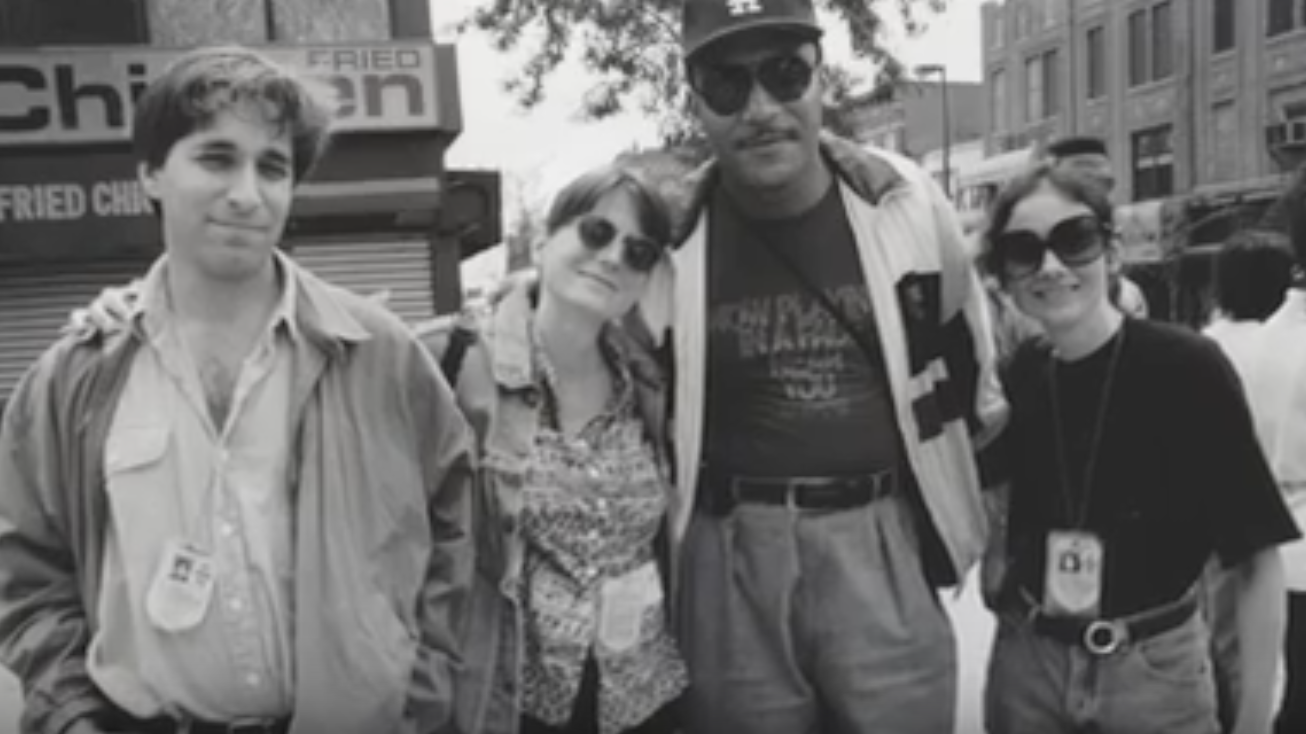essays
Letters From a Young Novelist #2: I Have Feelings for You, Cat Marnell, and I Intend to Defend Them
Wh

When I went into my MFA, I had no idea what I would be writing about. I didn’t know what my own style was — I just knew I liked Mary Gaitskill and Amy Hempel a lot, and I liked writing about drugs and boys. But, as that first year progressed, I found myself returning to a singular setting and time in my stories. It was not the setting and time I would have chosen for myself. But it makes sense, because the period I kept writing about was the most perplexing of my life.
When I was fifteen, I got into a lot of trouble. I ditched class, I did drugs, I hung out with a bad crowd, I cut myself, I slept with boys — I was a “troubled youth.” But, despite my functional upbringing, there was an explanation for this: halfway into my freshman year of high school, I was diagnosed with bipolar disorder. They put me on anti-depressants and mood stabilizers, and, because this was the 90s and they didn’t yet know much about the correlation between teenagers, anti-depressants, and suicidal ideation, I promptly attempted suicide a handful of times. About a year after the initial diagnosis, my parents found me in bed, unconscious, having swallowed around 100 pills each of Tegretol, Benadryl, and Tylenol PM. I woke three days later in the hospital to searing pain; my lungs had stopped functioning and I had been intubated. My parents were terrified and felt incapable of keeping me, their only child, safe. Following my week-long stay in a mental hospital, they shipped me off to a boarding school on a farm in Oregon that promised help. There I would receive counseling, medication, clear boundaries, and round-the-clock supervision.
This suicide attempt and my nine months at boarding school are what haunt my writing life. I don’t want to write about it, but I have to. As they say, we write about what we don’t understand, and I have little understanding about what happened to me while at boarding school. All I know is that nine months later I emerged, bloated from anti-psychotics, still “crazy,” still an active drug addict, but no longer suicidal. In many ways, my experience at boarding school saved my life.
So, at thirty, I’m writing about something that happened to me at sixteen, and it’s not fun. A thing they don’t tell you when you’re getting your MFA? If you want to write about past feelings and experiences well, then you have to relive them. I’ve been sober for over three years now, yet still the ickiest thing I can imagine experiencing is the exploration of negative emotions. But this is the load I feel compelled to carry, and so I explore on.
I started the book while in my MFA program, but ceased work on it upon graduation because I was too busy being

broke and afraid. I’ve been seriously working on it, again, for the past month, and June — the name of my protagonist who is me at sixteen but also not me — still hasn’t reached the boarding school. Which means she’s still out in the world, still actively engaging in drugs and sex and other forms of self-destructive madness. It’s really hard to embrace that mindset, but I force myself to go there. However, I’ve been finding myself maintaining a certain level of emotional distance, and this is something I know I have to push through.
One night, I got the bright idea that I should read all of Cat Marnell’s posts so I could better remember what it was like to be empty of feelings and full of drugs. So I did that, and they did indeed help me remember. But as it got later and later and I got deeper and deeper into an internet wormhole, I began to find myself not numb, but full of feelings. Some of these were of the sullied, rubber-necking-at-a-car-crash variety, and a lot more were published here, in words more articulate and well thought out than would be possible coming from my own mouth or fingertips. But quite a few feelings sprung from an interview with Vice, which was published before (and re-published after) the debut of her column, Amphetamine Logic, at the same website. These feelings were both complicated and specific, and, as I was reading her words, I felt like Cat was directly targeting me.
One line that offended me greatly:
“The reason I write about drugs so much is that it’s always been a boys club — the shameless drug user writers club at least. Women always write the recovery memoirs.”
I admit that me finding this to be some sort of personal attack is ridiculous, because: 1) I am not writing a memoir, and 2) I am not writing a book about recovery. (Not to mention: 3) Cat Marnell has no clue who I am.) I am not writing a memoir because the truth isn’t as truthful to me as fiction. And June is not going to recover — at least, I don’t think so. The arc of the recovery narrative pisses me off for a number of reasons, the first being that they tend to treat recovery as though it is a destination, with a final endpoint, when anyone in recovery who is even slightly honest will tell you that reaching sobriety is only the tip of the sanity iceberg. Because of this I have no desire to adhere to such a model; it is bullshit. I think that line hurt so much, felt so targeted to me, because I have an incredible aversion to clichés. Unfortunately, it is impossible to live a cliché-free existence. When I find myself falling into one, even slightly, it tends to sting. While I am indeed not writing a recovery memoir, I am writing about drugs in a way that is far from shameless.
Yet now Cat Marnell is telling me that of course I am writing this book from sobriety, because now it is safe, since I have achieved some distance from my days of liver damage, fender benders, and bloody noses. As she rather accurately said on XOJane before her departure, society doesn’t allow us to write about our issues with drugs until we have resolved them.
Like Sarah Hepola said in the New York Times, I agree that people can indeed write while high — I just know that my writing while high was shit. Personally, I would drink and write until I felt sleepy, and then I would take opiates to perk me up. Eventually I would stop when my vision doubled, and/or I passed/blacked out. Needless to say, there was only a small window of time each night before my intoxication grew too intoxicating, and because of this, very little writing actually got done. So I personally cannot write while high; I’m okay with this. But goddammit, I absolutely do not want to write about something simply because my sobriety has allowed society to sanction me to do so. While I recognize this is a reaction that would better befit a teenager wearing an anarchy symbol and a nose ring, I still can’t stop myself from having it.
That being said, I am fairly certain I would not have taken these little sentences so personally if I hadn’t read them on the heels of listening to Kate Christensen on Other People. She was discussing the attitude of the former chair of the Iowa Writer’s Workshop, and it was an attitude that rang a little too close to home: “[Frank Conroy] dismissed women… as writing little coming-of-age novels, and beneath his notice.” While I may not be writing a recovery memoir, I certainly am writing an autobiographical coming-of-age novel. And while I remind myself that yes, my novel is more Zyprexa and goat castration than mixtapes and unrequited love, it still bothers the hell out of me that I am doing something that anyone would mistake as being normal for my gender. Gender roles piss me off, but what pisses me off more is feeling like I have to fit into the narrow box that is “normal.”
Which brings me to the second Cat quote from the Vice interview that got to me:
[Doing amphetamines] made me who I am now… I could write a bit better. I was a little skinnier and crazy-eyed. I got more attention than other people. It’s like the same term they use to describe narcissistic people, which is “conspicuous existence” and it’s the same thing on speed. You have a conspicuous existence… If anything, that’s what you are addicted to: you become a little more special than other people. I’ve always been an enhanced version of a human being. Of myself. I’m addicted to that. When I went off of it, you know what happened? I became normal. I looked normal. My ideas were normal.
The first part of this quote I can relate to completely. On drugs, I felt special. I felt like I had a secret, and this made me complicated and dangerous, like a super-villain. I can also relate to her fears. When I first got sober, my biggest reservation lay not in all the capital-G-Godiness of twelve-step programs (although this was certainly a huge, smelly dump of a reservation), but in the fact that I was terrified of becoming boring. On drugs, I was a good time, I was interesting, I was a party chick. Who would I be without the substances? Boring. Boring, predictable, and — ew — reliable.
Hilariously, this is not the case. If you talk to anyone who knows me well, they will tell you that, sober or not, I am anything but normal. My head is still a swampy batcave of tenuously-regulated insanity. While I now have emotions that go beyond Rage, Despair, Fucked-Up, and Hungover, I still have only a rudimentary control on their regulations. While I now know that I should pause before I act, I’m still impulsive. While I now know that I should try to remain “positive” and “in the moment,” I still think most of society should get hit in the head a few times with a shovel. While these are negative examples that make me not normal, I assure you there are plenty of positive ones, it’s just that I feel wholly uncomfortable with writing about how hilariously “quirky” and “kooky” I am because I still carry around a fairly sizable load of self-loathing.
And my ideas? I don’t have normal ideas. But now, thankfully, I have the clarity, confidence, and tenaciousness to carry the good ones out. I can also tell you this: I still stay up til dawn regularly. But now, I am doing way more interesting things than closing down bars and nightclubs. In fact, the repetition and routine, of getting fucked up was one of the things that got me sober. Drugs, and drug users, all get so painfully predictable after a while. Life is difficult and full of extraneous bullshit, but once I removed the substances, I was able to see how incredibly unpredictable, how incredibly un-boring, life can be.
As much as I’d like to believe that a novel comes solely from weird past experiences and flashes of divine inspiration, I’m pretty sure clarity, confidence, and tenacity are a lot more essential. So I’m going to go work on my socially sanctioned, gender-cliched autobiographical little novel now, thank you very much. Maybe you’ll even get to read it, when it’s done in five or ten years.
Previously: Letter #1: Leaving the City I Love.
***
— Juliet Escoria is a writer living in Southern California. Sometimes you can find her here.









